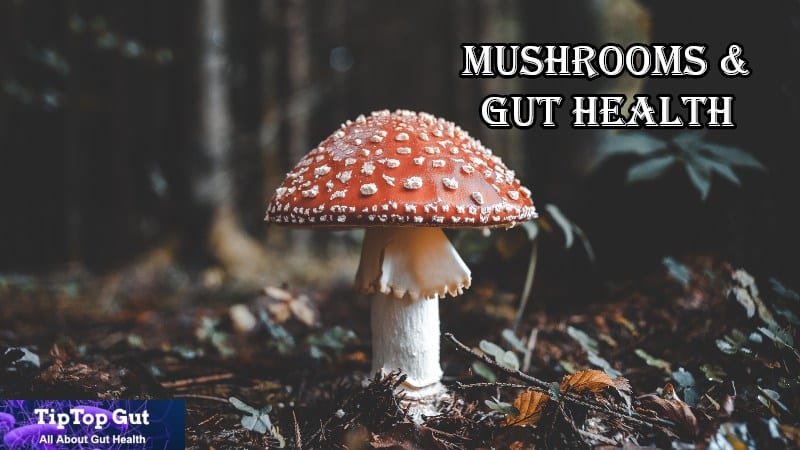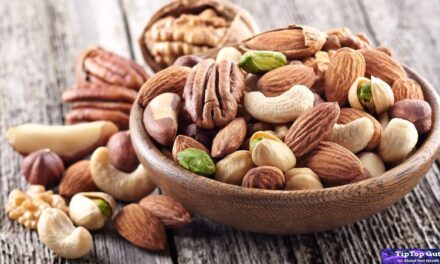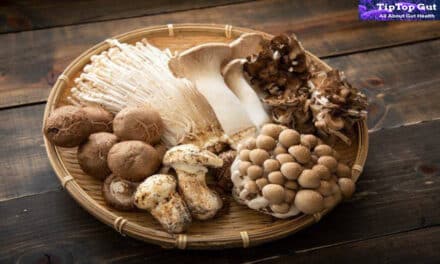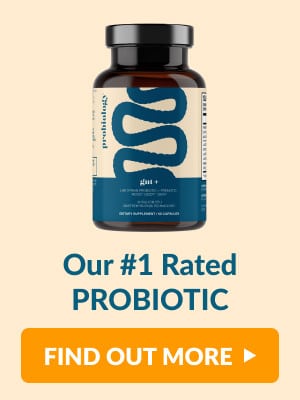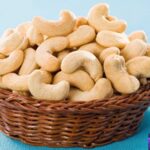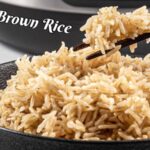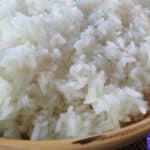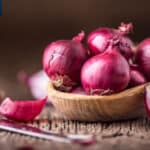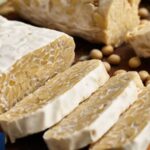Hippocrates, the Father of Natural Medicine, stated that medicinal mushrooms are good for your gut health. He said over 2500 years ago, “All disease starts in the stomach.” Hippocrates’ words were correct all those years ago. Science and medicine have advanced over the past decade.
The gut covers our entire digestive tract. The gut includes the stomach and small and large intestines – often referred to as the gut. Our large intestine houses our microbiota, a trillion of bacteria, fungi, and yeasts that work harmoniously to support our best health.
The healing properties of medicinal mushrooms have been used since ancient times to promote longevity and prevent many diseases. Science shows that the gut significantly determines whether diseases develop due to bacteria diversity, inflammation levels, and cell signaling.
Here we are going to discuss, “Are mushrooms good for gut health?”
Are Mushrooms Good for Gut Health?
Mushrooms are an excellent food for your gut health. They have been used medicinally for thousands of years. Mushrooms are the good prebiotics and are foods that feed the good bacteria in our stomachs, which helps to keep our bodies healthy.
Because mushrooms are high in carbohydrates, they can be used as prebiotics to encourage the growth of probiotics within the gut. Although I wish I could tell you which mushroom is best for your gut health, I can’t. All mushrooms are great for your gut!
How Can Mushrooms Improve Your Gut Health?
Mushrooms are high in protein (up to 44.93%) and have low calories. They also contain vitamins, fibers, and minerals. There are many health benefits to mushrooms, including antioxidants and cholesterol-lowering properties. They also have liver protection, antihypertensive, anti-inflammatory, and antiviral properties.
For a deeper look into the health of your gut and how medicinal mushrooms can be beneficial, you should know that dysbiotic bacteria produce and release endotoxins called lipopolysaccharides. These endotoxins cause leaky gut and inflammation, leading to disease throughout the body.
Dysbiotic bacteria can also alter the pH of your gut, preventing you from absorbing certain nutrients and creating gut-protecting compounds like butyrate. This important short-chain fatty acid allows your gut cells to produce energy and function.
We see the effects of dysbiosis on an individual’s health, regardless of whether there is an overgrowth or dysfunctional gut bacteria. Bloating, brain fog, and inability to lose weight are all signs of dysbiosis in the gut. We can help by changing our lifestyles and adding beneficial medicinal mushrooms to our diet.
Adaptogenic Properties
Medicinal mushrooms are well-known for their adaptogenic qualities – they nourish the nervous system and reduce stress responses – which supports healthy digestion and gut health.
Reishi’s adaptogenic qualities support gut health and digestion by buffering stress responses. As we mentioned at the beginning of this article, stress is a significant driver of gut problems. Reishi can help decrease inflammation and support a more balanced stress response and a stronger immune system.
Prebiotics for gut flora
Because of their prebiotic properties, mushrooms are suitable for your gut and can prevent the growth and development of dysbiotic bacteria.
Prebiotics stimulate and feed bacteria. However, it is important to remember that they can also feed beneficial bacteria.
In addition to buffering stress, medicinal mushrooms also contain prebiotic components called polysaccharides, beta-glucans, and galactans. These long-chain sugars encourage the growth of beneficial bacteria within the gut.
Controlling harmful bacteria growth
The human gut microbiota is home to more than 10 trillion microorganisms. There are 1000 species of bacteria and more than 3,000,000 genes. This is 150 times more than the human genome. In recent years, extensive research has been conducted on the human gut microbiota. Our knowledge about the inhabitant species, as well as its functioning, has increased.
Two major phyla comprise the normal human gut microbiota, Firmicutes, and Bacteroidetes. The microbiota in the gut is responsible for digesting foods not digested by the stomach or intestine enzymes. It is an integral part of the immune system and acts as a barrier.
The gut barrier function refers to the ability of the gut to protect it from harmful substances and regulate intake through the mucosa.
There are four types of barrier function: physical (mucous, intestinal epithelial cell, digestive enzyme, and bile acids), chemical (gastric acid and digestive enzyme and bile acid), biochemical (lymphocytes, immunoglobulin A), and immunological barriers (intestinal bacteria). It aids in the production of vitamins B and K.
A balanced diet has been proven to help maintain healthy and stable gut microbiota. This will also reduce the chance of developing many diseases. Dietary carbohydrates are the primary source of nutrients for the gut microbiota.
Read More:
Biotics 8 Review: SCAM or A Legit Probiotic for Men?
Antioxidant and antifungal properties
The antifungal and antioxidant properties of medicinal mushrooms prevent yeast and fungus overgrowth in the body. This is a fascinating fact, considering that mushrooms are fungi.
The overgrowth of Candida albicans, an essential yeast, is also prevented by medicinal mushrooms. This causes chronic thrush, brain fog, and dandruff. A study found that 80% of the immune system’s components are located in the gut. This mucosal mucus layer acts as a barrier against bacteria and viruses, protecting our gut cells from potentially harmful factors.
Chaga Mushroom (Inonotus Obliquus) is another excellent medicinal mushroom for gut health. Traditionally, Chaga was used to treat GI problems and disorders. It is antiviral and immunomodulatory, as well as a powerful antioxidant.
These anti-microbial properties are due to Chaga’s melano-glucan and betulinic acids. They fight bacterial infections that can cause leaky and other issues in the gut. Chaga can also be used as an antioxidant to buffer the harmful effects of dysbiotic bacteria endotoxins. Studies have also shown that Chaga is protective against colorectal carcinoma.
Source of Vitamin D2
Vitamin D2 is another essential benefit for medicinal mushrooms and gut health. One of the few foods with vitamin D2 – the preformed form of D3 – mushrooms are one. Vitamin D is essential for immune function, gut signaling, and inflammation.
Mushrooms possess a remarkable ability to absorb light and convert it into vitamin D2. Wild mushrooms have small amounts of Vitamin D2. D2 can be increased through ultraviolet light exposure. By exposing cultivated mushrooms to UV (Ultraviolet) light, ergosterol (thought to be a fungal cholesterol similar to human cholesterol) can be converted to ergocalciferol.
One study demonstrated that various mushrooms could increase their vitamin D2 levels by exposure to ultraviolet light. As the number of pulses increased, the mushrooms were exposed more to ultraviolet radiation.
Thus, Vitamin D2 synthesis became more energy efficient. After being exposed to ultraviolet light for pulsed periods, the oysters and shiitakes had higher Vitamin D2 contents than the other mushrooms.
Source of Vitamin B5
Vitamins B are essential for energy production, and mushrooms are rich in them. They are a great source of riboflavin, pantothenic acid, and niacin. They are a great source of B6 and thiamin and also a good source of Folic Acid. The metabolism of carbohydrates, protein, and fat depends on all B vitamins.
Pantothenic acid is vitamin B5, which mushrooms are rich in. Pantothenic acid, which is vitamin B5, helps prevent fatigue. It supports adrenal gland function in stressful times.
Stress is one of the leading causes of poor digestive health. Stress reduction is possible by eating or consuming mushrooms. This promotes a healthy digestive tract.
Increases Gut-Brain Connection
Lion’s Mane, a mushroom known for supporting brain cells and new cell development in the body, is also thought to impact the enteric nervous systems. It can be used to improve mental clarity and focus. Lion’s Mane is available as an addition to a mushroom drink or as a whole.
Sleep and food are interconnected. After eating, blood sugar levels rise, which causes insulin to be released in our bodies. Our brains recognize insulin as a sign of releasing tryptophan, an amino acid found in food.
This allows more of the amino acid to be absorbed into our brains. This allows serotonin to be released and helps us fall asleep. Tryptophan is a building block of serotonin and melatonin in mushrooms. They help regulate the sleep cycle.
Medical professionals know the communication pathway that runs from our stomach to our brain. A 6-year study in Singapore found that eating more than 2 cups of cooked mushrooms per week can lower your risk of mild cognitive impairment by 50 percent.
Cognitive support is thought to come from ergothioneine, a compound found in mushrooms that is a unique anti-inflammatory and antioxidant. It can, however, be obtained from dietary sources. One of these is mushrooms. Mushrooms are good for digestion, healthy sleep, energy, brain function, and calmness.
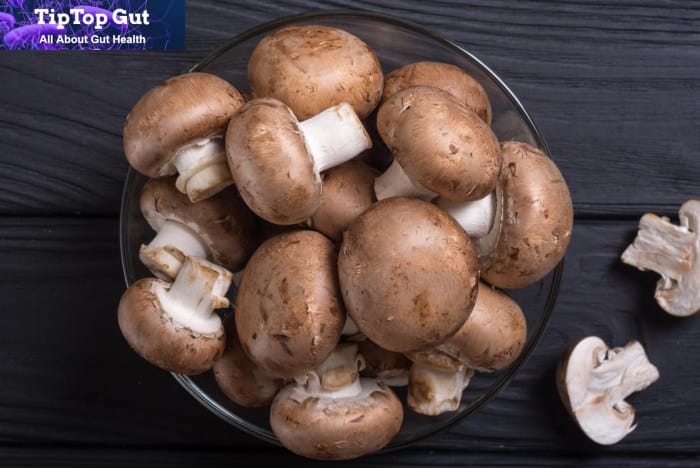
Other Health Benefits of Mushrooms
- The anti-allergic, anti-cholesterol, anti-tumor, and anti-cancer properties of mushrooms have been proven.
- The immune system is stimulated by mushrooms’ high levels of polysaccharides, particularly beta-glucans.
- Mushrooms are rich sources of carbohydrates like chitin and hemicellulose, as well as b and glucans, galactans, and mannans. This makes them an excellent choice for prebiotics.
- The prebiotic effect of mushrooms stimulates the gut’s microbiota growth and health benefits
- Mushrooms offer numerous vital health benefits, including antioxidants and cholesterol-lowering properties. They also have liver protection, antihypertensive, anti-inflammatory, and antiviral properties.
- Prebiotics can modulate and strengthen the digestive system.
- Lung function can be improved and allergies reduced.
- Antibacterial, antiviral, and antineoplastic properties
Read More:
Best Mushroom for Gut Health: What Science Recommends?
The Vital Role of Gut Health
Everybody knows that your health is dependent on your gastrointestinal tract. It transports food from your mouth into your stomach, converts it to absorbable nutrients, stores energy, and removes waste.
Your gastrointestinal tract has been shown to be linked to many aspects of your health in recent years. These include emotional stress and chronic diseases like cancer and diabetes. The GI tract contains trillions of bacteria, which aid food processing and contribute to overall health and well-being.
Your gut, also known as the microbiome, may be the key to many health problems. It is made up of bacteria and microorganisms in the stomach and intestines. Certain foods, behaviors, and environments can impact gut health. This is why it matters and what you can do about it.
All food is eventually broken down in our digestive system into a simpler form that can be absorbed into the bloodstream and delivered as nutrients throughout our bodies. Healthy digestive systems are essential for this process.
A healthy gut has healthy bacteria and immune cells, which protect against infections like viruses, bacteria, and fungi. Nerves and hormones in a healthy gut connect with the brain. This helps to maintain overall health and well-being. Eating a healthy diet, drinking water, getting enough sleep, and exercising often is essential. A healthy diet and regular exercise will ensure a healthy digestive system.
Your microbiome can also be affected by the same bad habits you have for your other organs, such as smoking or excessive alcohol consumption. Talk to your doctor about your current medication regimen and how it might affect your gut health.
Read More:
60 Best Foods for Gut Health and Digestion: The Best Guide You Ever Need!
FAQs about Mushroom and Gut Health
Are mushrooms easy on the stomach with so much fiber?
Mushrooms provide a high-quality, low-calorie source of fiber and protein. They can also reduce the chance of developing serious conditions like Alzheimer’s, heart disease, and cancer. They are also excellent sources for Selenium.
Also, mushrooms contain hard-to-digest sugars. Consuming mushrooms can cause gas, as the small intestine doesn’t fully digest them. Instead, the sugars undergo fermentation in large intestines.
Are mushrooms easy on the stomach?
Despite low calories (90% water), mushrooms are hard to digest. Chitin is found in fungal cell walls. Chitin is a polysaccharide that resembles cellulose but is not digested in the human stomach. Additionally, mushrooms are rich in protein types that are difficult to dissolve by stomach acids.
As with most things, portion control should be the primary goal. Try small amounts of cooked mushrooms to see if you are more sensitive. Mixing mushrooms with other foods, like beans, can make them more challenging to digest. It is better to replace mushrooms with potatoes or lettuce. They should be avoided in the evening because mushrooms can remain in your stomach for a while.
What is the difference between prebiotics and probiotics?
Foods or supplements that include live microbes are referred to as probiotics. They can support or improve “good” bacteria (normal or normal microflora). Prebiotics, usually high-fiber foods, act as food for the human microflora. Prebiotics are intended to improve the balance of microorganisms.
Foods like yogurt and sauerkraut contain probiotics. Whole grains, whole grains, legumes, tomatoes, greens, garlic, soya beans, and artichokes are all rich in prebiotics. Probiotics and prebiotics can also be added to certain foods as dietary supplements.
Which mushroom is best for gut health?
All species of mushrooms, including turkey tail, Reishi, and lion’s mane, have gut-health-supporting benefits. These mushrooms have a variety of health benefits, including mood-supporting and immune defense abilities. You can read more about the Best Mushrooms for Gut Health.
Can mushrooms heal leaky gut?
Studies have shown that Reishi can also preserve intestinal integrity. This means we are able to maintain a tight, strong gut wall. This reduces the risk of developing diseases like leaky gut.
Chaga mushrooms’ immunomodulatory properties can reduce inflammation associated with a leaky stomach. This makes it an effective gut-friendly tonic. Chaga can also help reverse any excess immune system, such as in cases of autoimmune disorders.
Are mushrooms a good probiotic?
Because mushrooms are high in carbohydrates, they can be used as prebiotics to encourage the growth of probiotics. Probiotics are good microorganisms that reside in your digestive system. Probiotics are good bacteria that help fight disease and illness and maintain a healthy immune system.
Did you know that 70% of the immune system can be found in the gut? A healthy gut is essential for optimal health. Probiotics can be found in prebiotics such as those found in mushrooms.
Do mushrooms affect IBS?
If you have IBS and are looking for mushrooms, there is one mushroom that will do the trick. High FODMAP foods are almost all mushrooms, including Portabello and button. Oyster mushroom is the only edible mushroom considered low-FODMAP. You can enjoy oyster mushrooms’ rich nutrition and great taste if you replace all other mushrooms.
Are cooked mushrooms easy to digest?
People with digestive problems might cook mushrooms to make them easier to digest. Mushrooms are protected by rigid cell walls made of chitin. While cooking mushrooms makes it simpler to digest and absorb their nutrients, this is true for all foods. Although it is safe to eat mushrooms such as oyster, button, and shiitake raw, they are easier to digest when cooked.
Which mushrooms are prebiotic?
The prebiotics in mushrooms can stimulate the growth and development of the microbiota. This provides health benefits for the host.
Mushrooms are anti-allergic, low-cholesterol, and anti-tumor. The high levels of carbohydrates in mushrooms, including chitin and hemicellulose, mannans and xylans, and b- and a–glucans, make them an excellent choice for prebiotics.
Mushrooms can be used as prebiotics to increase the microbiota in the gut, which confers health benefits to the host. There are 380 species of mushrooms with medicinal properties. More prebiotic sources are possible in the future.
Are mushrooms good for constipation?
The fiber found in mushrooms is essential for maintaining a healthy digestive tract. Fiber is vital for maintaining a healthy gut microbiome. It helps bulk up stool, prevents constipation, and aids in digestion. Furthermore, mushrooms are rich in compounds such as chitin or chitosan that can improve gut health and balance the microbiome.
The benefits of Lion’s Mane Shiitake, Pleurotus, and Shiitake are significant. They support the health and function of the bowel and balance the gut microbiota (beneficial bacteria in the gut).
Can you take probiotics with mushrooms?
The combination of bacteria and medicinal mushrooms creates a powerful synergistic alliance that increases the absorption of probiotic bacteria in your intestine. It also provides high-quality nutrients to enrich intestinal flora, improve metabolism, and increase overall health.
Concluding Now; Are Mushrooms Good for Gut Health?
Because of their prebiotic properties, mushrooms are good for your gut and can prevent the growth and development of dysbiotic bacteria. Any of these mushrooms could be the best for your gut health: Reishi, Chaga or Maitake, Turkey Tail, Lion’s Mane, Maitake, Maitake, or Chaga.
Scientific research shows these are the best medicinal mushroom supplements for gut health. These medicinal mushroom supplements are suitable for your gut health. They strengthen the gut barrier, decrease inflammation and improve digestion. Try adding medicinal mushrooms to your daily drinks to improve your gut health.
Read More:
Best Over the Counter Probiotic for Gut Health: Easy Guide 2022
Best Probiotic for Gut Health and Weight Loss: An Ultimate Guide 2022
Best Probiotic for Vaginal and Gut Health: The Best Guide 2022
Sources and References
At TipTop Gut, we rely on peer-reviewed studies, academic research institutions, and medical associations. We avoid using tertiary references.
-
Jayachandran M, Xiao J, Xu B. A Critical Review on Health Promoting Benefits of Edible Mushrooms through Gut Microbiota. Int J Mol Sci. 2017 Sep 8;18(9):1934. doi: 10.3390/ijms18091934. PMID: 28885559; PMCID: PMC5618583.
- Harvard School
- WebMD
- Healthline
- Mushroom Council
-
Rop O, Mlcek J, Jurikova T. Beta-glucans in higher fungi and their health effects. Nutr Rev. 2009 Nov;67(11):624-31. doi: 10.1111/j.1753-4887.2009.00230.x. PMID: 19906249.
- Nowak R, Nowacka-Jechalke N, Juda M, Malm A. The preliminary study of prebiotic potential of Polish wild mushroom polysaccharides: the stimulation effect on Lactobacillus strains growth. European journal of nutrition. 2018 Jun 1;57(4):1511-21.
- Chou WT, Sheih IC, Fang TJ. The applications of polysaccharides from various mushroom wastes as prebiotics in different systems. Journal of food science. 2013 Jul;78(7):M1041-8.

